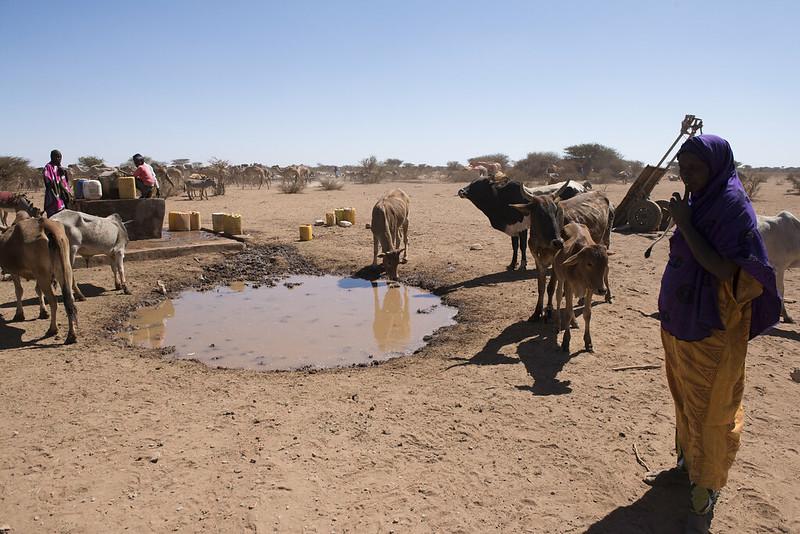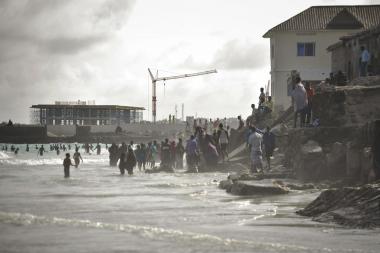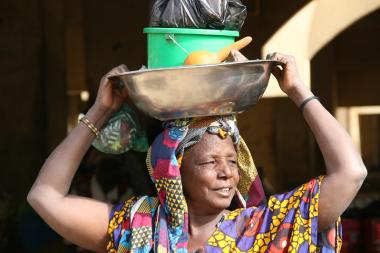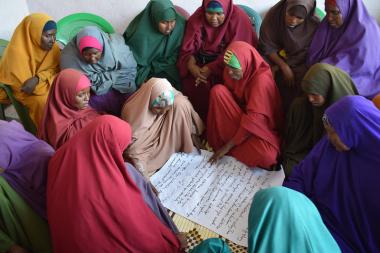Financing climate adaptation in fragile states: A case of Somalia
This policy brief outlines some of the key actions the Federal Government of Somalia, and development and humanitarian partners financing climate-related activities can take to accelerate climate action.
Somalia is highly vulnerable to climate hazards, including those made worse by climate change. Despite this, the country receives little climate finance. The drought that began in the country in 2021, which continued at the time of writing in May 2023, and the resulting famine have affected the lives of 6.6 million people or more (IPC, 2023). People in the country face extreme challenges: from loss of livelihoods to hunger, misery, illness and death. All of this is difficult to monetise.
The increase in humanitarian appeals – from US$1.09 billion in 2021 to US$2.27 billion in 2022 (OCHA, 2022) – reflects the need for greater financial support to provide critical resources to these vulnerable people.
The Federal Government of Somalia, and development and humanitarian partners recognise that both slow onset climate stresses and rapid-onset climate shocks exacerbate Somalia’s fragile polity, economy and society. Bilateral and multilateral funding has been vital to financing climate-related activities in Somalia, but there are missed opportunities in acquiring funding and using the scarce finance effectively.
This policy brief identifies entry points of action and recommendations that development and humanitarian actors and the Federal Government can adopt to enable and accelerate access to resources. These recommendations, which aim to build government capacity and improve the quality and relevance of climate adaptation, include:
Strengthening the role and capacity of Somalia’s National Designated Agency (NDA), the Ministry of Environment and Climate Change (MoECC), and relevant government ministries: Supporting the newly established institutional architecture of the MoECC, especially its vision and staff is vital. This requires strengthening leadership and advocacy across government entities involved in climate action. A strengthened NDA can help to incorporate short- to long-term adaptation needs into other policies, and unite the government's position to meet Somalia's climate ambitions. Development and humanitarian partners, and existing accredited entities (AEs) to vertical climate funds (VCFs), can then respond to the needs articulated by the NDA and fund capacity gaps;
Improving climate data acquisition and analysis, and establishing knowledge-sharing platforms: Somalia needs to expand the number and spatial coverage of automated weather stations, groundwater stations and river gages under the Somali Water and Land Information Management (SWALIM) system to collect weather data and be able to monitor climate change trends. Better climate and hydrology data supports more robust climate risk assessments, which are needed to inform government policy, and humanitarian and development programmes. This can assist Somalia in moving beyond short-term responses to current climate shocks to incorporating adaptation into policies, strategies and projects across all sectors.
Enhancing coordination, collaboration and coherence of project and programme proposals to address adverse climate impacts by establishing a multi-stakeholder coordination group that includes all actors in the development and humanitarian sectors and the government: Establish a multi-stakeholder coordination group to address climate adaptation that includes all actors in the development sector and the humanitarian sector (or build upon the ‘Friends of the Environment’ network). Currently these actors – and the government – work in silo, at a time when effective financial support and resource allocation is needed. Key stakeholders must reach a common understanding of the country’s needs to avoid duplication of efforts, to combine expertise and knowledge, to access more finance and to improve project implementation.



